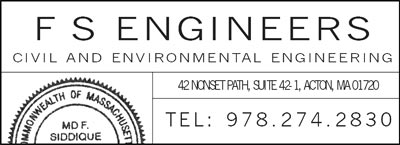Project Years: 2007
RCRA / CERCLA Cleanup Process
FS Engineers supervised a soil vapor extraction (SVE) pilot test at the Durham Meadows Superfund site in Durham, CT where dissolved organic solvents impacted groundwater in several locations throughout the area.
The potential sources of releases to the environment were two metal manufacturing companies that had previously disposed of wastewater in on-site lagoons and sludge drying beds, and where additional releases occurred due to inadequate drum storage.
Contaminant migration impacted nearby properties with private supply wells which necessitated the implementation of groundwater treatment measures at the individual private well systems. Contaminated groundwater was also found to have impacted soil vapor quality in several portions of the study area.
Design and Implementation of Remediation Strategies
The EPA’s cleanup plan for the site included both a permanent alternate source of drinking water for effected properties as well as source area remediation for the impacts to soil, groundwater, and soil vapor.
SVE pilot tests were conducted at two targeted locations in order to determine the effectiveness of a full scale remediation of the impacted areas of the site. The site was characterized by dense glacial till overlying shallow bedrock.
SVE pilot tests were conducted using GES’s Data Acquisition and Processing Laboratory (DAPL). The DAPL is a self-contained pilot testing platform that provided computerized, on-site, real-time data acquisition and processing evaluation. The platform allowed for the continuous logging of operating conditions and field responses to allow for the immediate evaluation of test conditions. This allowed for the flexibility to customize the pilot test to specific site conditions.
Geological, Geotechnical, Geothermal and Geophysical Investigations
FSE utilized direct push drilling methods to install the SVE wells in the dense glacial till native soils.
Environmental Chemistry Data Collection, Management and Interpretation
Based upon the subsurface conditions encountered, and the operating parameters of the systems (radius of influence, operating vacuum, vapor mass removal rates, etc.), FSE concluded that it would not be practical to remediate soil vapor throughout the entire site with the current technology and economic feasibility./p>
Human Health and Ecological Risk Assessment, Toxicology and Industrial Hygiene
The project team of FSE and GES performed continuous noise monitoring at the property boundary throughout the SVE pilot test. The data verified that decibel levels generated by the SVE equipment did not exceed preestablished levels and did not adversely impact the< neighboring residential properties.
Vapor monitoring of the ambient air was also performed during the pilot testing using an onsite FID.
